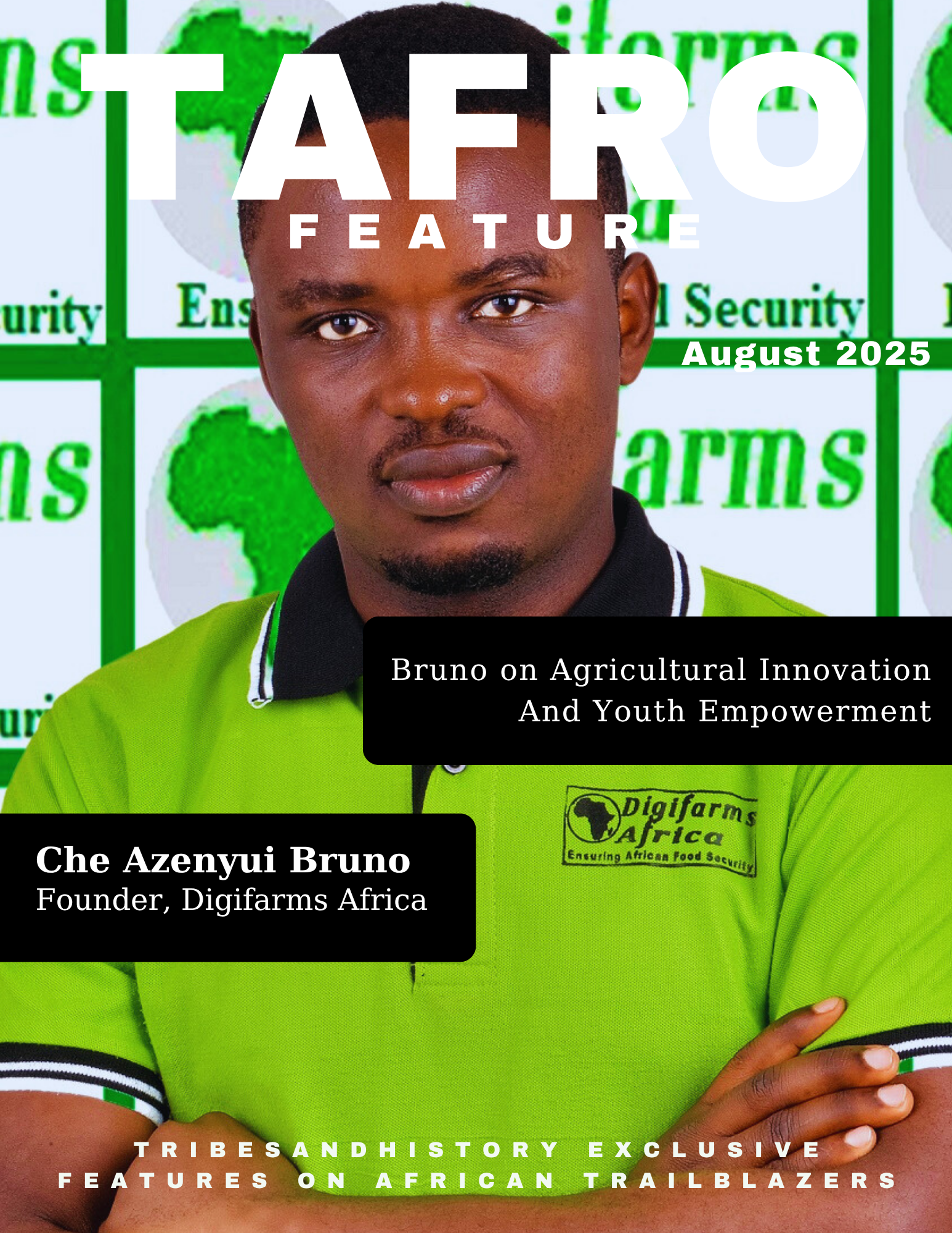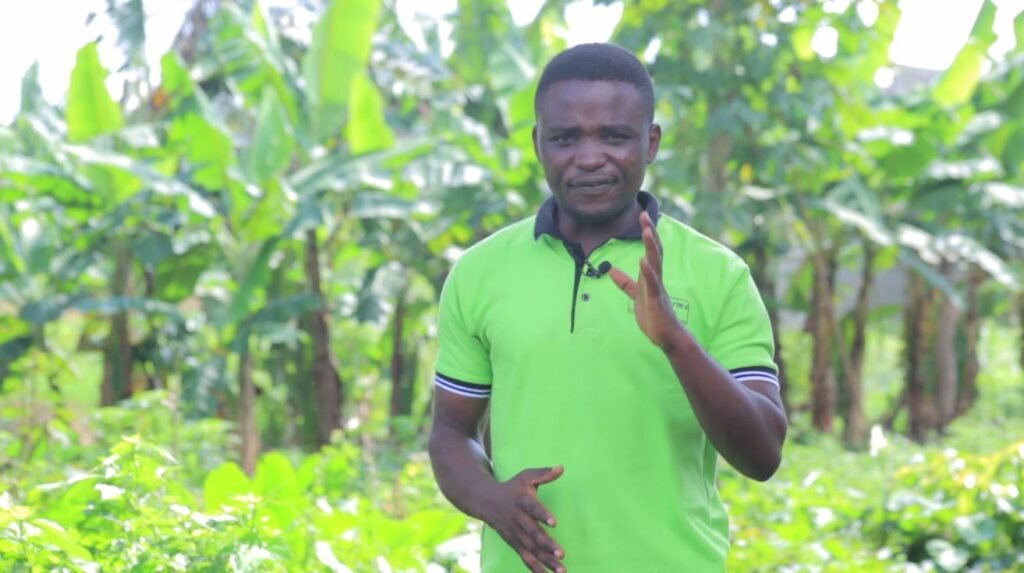
TribesAndHistory: What’s your name, and how would you like to be addressed?
Bruno: My full name is Che Azenyui Bruno. The “Azenyui” tends to confuse people, so I usually go by just Bruno. For the purposes of this interview, you can call me Bruno. Either works for me.
TribesAndHistory: Great. How can our readers connect with you? Are you active on any social media platforms?
Bruno: Yes, I’m most active on LinkedIn and Facebook. On LinkedIn, I use all three of my names. On Facebook, it’s just Bruno, my first and last name. I do have an Instagram account, but I barely use it. So I’d say LinkedIn and Facebook are your best bets.
TribesAndHistory: So, where are you from?
Bruno: I was born in Ndop, in the Northwest region of Cameroon. My tribe is Bafut, also located in the Northwest. So, in terms of ethnicity, I’m Bafut. In Cameroon, people often refer to us from English-speaking regions as Anglophones, and I do identify with that. But more importantly, I see myself as Cameroonian, and even more so, as African. I’m currently based in Yaoundé, in the Center region of Cameroon.
TribesAndHistory: Beautiful. What do you do?
Bruno: I currently run an enterprise called Digifarms Africa. I’d love to tell you more about it as we go along. I’m a full-time entrepreneur now, but academically, I was trained as a journalist and news reporter. I worked in journalism and also in public relations, especially with nonprofit organizations here in Cameroon.
In 2019, I made the transition to full-time entrepreneurship when I founded DigiFarms Africa. Since then, I’ve been balancing that with freelance journalism from time to time, mostly passion-driven stories or opinion pieces that I pitch to media houses when I feel compelled to write.
Aside from running Digifarms, I’m deeply invested in youth development across Africa. I provide coaching and mentorship to young entrepreneurs, emerging leaders, and even budding reporters, helping them build capacity in leadership, public management, entrepreneurship, and personal development.
So, in a nutshell, my work revolves around entrepreneurship, agricultural innovation, youth empowerment, and occasionally journalism.
TribesAndHistory: Incredible. What inspired you to start Digifarms Africa?
Bruno: There were a few driving forces, but let me focus on two.
First, my personal experience. I grew up in an agricultural environment. I’ve witnessed firsthand the struggles of smallholder farmers in Cameroon, how they work tirelessly for months only to face serious obstacles when it’s time to sell or preserve their produce. Issues like poor market access, lack of storage, and post-harvest losses are rampant. I saw these issues up close in my family and community. I kept asking: Can’t something be done? Is there no solution, even a small one, to break this cycle?
Those questions stuck with me from childhood, and I never imagined I’d someday be part of the answer.
Second, I’ve always had a deep interest in technology and innovation. When I began seeing how tech could be applied to agriculture, how we could connect farmers to markets more efficiently, I felt that this might be the step I needed to take.
So in 2019, I pulled together some early, rough ideas and began talking to potential partners and investors. Most people didn’t take it seriously at first, it sounded too abstract. But one organization saw the potential and gave us our first seed capital: $3,000. That gave us a chance to test our ideas. And guess what? They worked. Not perfectly, of course, but enough to show us that there was real potential to build something transformative.
TribesAndHistory: That’s incredible. I’m also an entrepreneur, and I completely understand that moment where people think you’re crazy, until they start to see results. What exactly does Digifarms Africa do?
Bruno: At its core, Digifarms Africa is about connecting farmers to markets. Our flagship service is an agricultural commodity e-commerce platform. It allows farmers, equipment suppliers, service providers, and any stakeholder in the agricultural value chain to connect with buyers and markets with just a click.
Beyond that, we also engage in our own agricultural production. We farm crops like maize, cassava, and yams. We’re also getting into value addition, processing raw crops into finished or semi-finished goods.
So, in total, we work across three major areas:
Right now, the e-commerce platform is offline as we’re upgrading some of its features, but we’re actively working to relaunch.
TribesAndHistory: That’s powerful. Was there a pivotal moment in your journey that shaped the leader you are today?

Bruno: Absolutely. That moment was when we received our first external investment, the $3,000 seed capital I mentioned earlier. As an entrepreneur, you can believe in your vision all you want, but the moment someone else believes in it enough to invest in you, that’s when it becomes real.
I remember telling my friends, “Remember that crazy idea I’ve been ranting about? Someone just gave me $3,000 to make it happen.” That first “yes” gave me the courage to keep going. Since then, we’ve attracted additional support and even larger investments from a few NGOs and individual investors. But that first one? That one is unforgettable. It validated everything.
TribesAndHistory: I can imagine! That first “yes” is always golden. Now, let’s talk heritage. How has being African shaped your leadership and business journey?
Bruno: I love this question. I’m proudly African. And over the years, I’ve come to see our continent not just through its challenges, but through its possibilities.
I used to be part of the narrative that focused on what’s wrong with Africa. But now, I’ve shifted my mindset. Africa is rich in resources, land, people, sunshine, creativity, and above all, potential. That belief drives everything I do.
We want Digifarms Africa to be a Pan-African solution, built for Africa by Africans. 60–70% of our population works in agriculture, but most farmers are still producing at a subsistence level. Meanwhile, we import billions of dollars’ worth of food. That shouldn’t be.
We need to transform agriculture into a viable business sector. That’s what I want to do: help African farmers move from subsistence to scale, from production to profit.
TribesAndHistory: Amen to that. You’re speaking to something urgent and important. So, to close, do you have any final words of wisdom for young Africans reading this?
Bruno: Yes, several. But let me say this:
Africa has untapped potential, and much of it lies in its youth. I’ve had the privilege of engaging with young people across the continent, and beneath the surface challenges, I’ve seen brilliance, creativity, and resilience.
The key is to stop focusing only on the problems. Challenges are real, but so are opportunities, and they often lie right beyond those challenges. If we can learn to look past the obstacles and keep pushing forward, we’ll find the space to create real solutions.
And to my fellow African entrepreneurs: we may not have all the capital we want, but we do have fertile land, abundant talent, and untapped markets. If we leverage these wisely and invest in our people and ideas, Africa can be the world’s solution, not just to food insecurity, but to innovation and growth.
So yes, I believe in Africa. And I hope more of us will, too.
TribesAndHistory: Bruno, thank you so much. Your story, your vision, and your belief in Africa are incredibly powerful. We’re honored to share your journey.